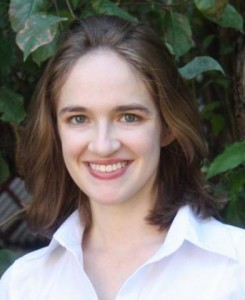
Students with access to a wider range of public school choices may be less likely to sign up for private school vouchers.
That’s one of the most significant new findings of a Florida-based study that provides a detailed picture of factors that drive parents to “shop around” for the best education options for their children.
“The results so far suggest that the contexts of students’ own public schools, their private school options and their public school options are all related to participation in the voucher program,” writes Cassandra Hart, an assistant professor at the University of California-Davis who authored the study.
Hart previously worked with David Figlio of Northwestern University on other school choice-related research, including an earlier analysis of students who participate in Florida’s tax credit scholarship program for low-income students. Figlio’s annual evaluations of the program (which is administered by organizations like Step Up For Students, which co-hosts this blog) have found that students who participate are more disadvantaged than eligible students who don’t, and that participants come disproportionately from struggling schools.
Hart’s new paper, published in the June edition of the journal Educational Evaluation and Policy Analysis, examines similar data. But it also expands on earlier research by analyzing a wider range of information, including teacher and principal surveys about school climates, and by analyzing the “markets” for public and private school enrollment.
Hart compares the school and individual characteristics of 555,271 students who may have been eligible for scholarships with 2,764 new scholarship participants from the 2007-08 school year, to look at factors that may have spurred the latter to participate.
In what she writes may be the study’s most “novel contribution,” Hart finds that students with a robust set of public school options – with a large number of charter schools in a 5-mile radius, or in school districts with popular open enrollment programs – appear less likely to sign up for tax credit scholarships than those with fewer such options.
Hart also finds that “students who face a more competitive private school market – with private options nearby, a variety of types of schools to choose from, and better reputed private schools – may be more likely to apply to the program.”
Eligible students were more likely to participate if their public schools had relatively low test scores or a higher volume of disciplinary incidents. That was slightly more true for students who had a wider range of private school choices available to them.
Hart writes that the findings could lead to further inquiry focused on students who are awarded scholarships, but choose not to use them. It’s possible they ultimately turn down the scholarships because they gain access to charter schools or other educational options. That’s a question she flags for future research.



[…] MARKET: A new study finds families are less likely to choose a private school with a voucher if they have more public-school o…, such as charter schools, available nearby. The study also found low-quality public schools and […]